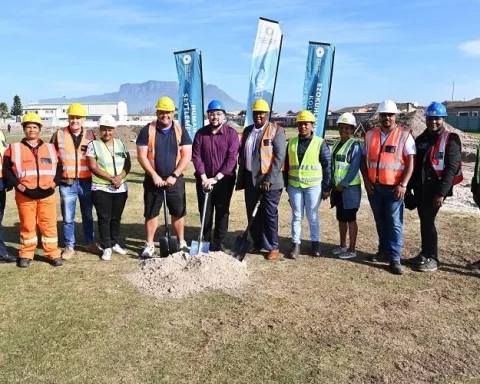The Government Communication and Information System (GCIS) is hosting a webinar on October 18, 2023, to commemorate the 30-year journey of community media in South Africa. The event will highlight the industry’s growth over time, its impact on society and development, and notable milestones and events. Attendees, including journalists and media professionals, will have an opportunity to participate in discussions, share their experiences and knowledge, and celebrate the rich and diverse history of community media in South Africa. The virtual event will take place on the Zoom platform and will be live-streamed on YouTube.
What is the GCIS webinar about and what will be discussed?
The GCIS is organizing a webinar to honor the 30-year journey of community media in South Africa, highlighting its achievements, challenges, and changes. Attendees will learn about the industry’s growth over time, as well as its impact on society and national development. The discussion will feature notable milestones and events, such as the emergence of community radio stations, local newspapers, and digital platforms. The virtual event will take place on the Zoom platform and will be live-streamed on YouTube.
A Milestone for South African Community Media
To commemorate Media Freedom Day, the Government Communication and Information System (GCIS) is organizing a webinar that highlights and honors the 30-year journey of community media in South Africa. This significant milestone embodies the nation’s cultural and historical progress since apartheid ended. Scheduled for October 18, 2023, the webinar invites journalists, media professionals, and enthusiasts to participate in discussions and share their experiences and knowledge about the evolution of South Africa’s community media landscape.
Community media has played a vital role in South Africa’s democratic development since its inception. Over the last thirty years, these grassroots organizations have given a voice to local communities and initiated important discussions on socio-cultural, political, and economic matters. In many respects, community media has served as the backbone of South African civil society, empowering individuals and communities to express their thoughts and participate in the ongoing national discourse.
The upcoming webinar will demonstrate the resilience and strength of South African community media. It will provide an opportunity for attendees to learn about the industry’s growth over time, focusing on its achievements, challenges, and changes. To celebrate the rich and diverse history of community media in South Africa, the discussion will feature notable milestones and events, such as the emergence of community radio stations, local newspapers, and digital platforms.
Community Media’s Impact on Society and Development
Besides its historical and artistic aspects, the webinar will explore the impact of community media on South African society. Throughout the years, community media organizations have significantly influenced public opinion and driven social change. By committing to fair and balanced journalism, these outlets have highlighted underrepresented stories and viewpoints, fostering a more inclusive and representative media scene in the country.
Moreover, the webinar will investigate the connection between community media and national development. The sector’s growth has considerably empowered local communities by equipping them with the necessary tools and resources to address critical issues affecting their lives. By promoting communication and collaboration, community media has played an essential part in strengthening the social fabric of South African society.
To encourage connections and collaborations, the GCIS invites media members to attend and cover the webinar. The virtual event will take place on the Zoom platform and will be live-streamed on YouTube.
As South Africa observes Media Freedom Day on October 19th, the GCIS-hosted webinar presents a fitting opportunity to reflect on the critical role community media has played in the nation’s pursuit of openness and democracy. This celebration should remind us of the importance of preserving and nurturing community media, as it remains a cornerstone of South Africa’s dynamic and diverse media landscape.
Looking Ahead: The Future of Community Media
In summary, the forthcoming GCIS webinar offers an insightful and engaging examination of community media’s 30-year journey in South Africa. It is an opportunity to acknowledge and honor the accomplishments of those who have contributed to the growth and development of this essential sector, while also creating a platform for continued dialogue and collaboration. As we anticipate the next 30 years, let us not forget the power of community media in empowering voices and spearheading change, both within South Africa and beyond.
1. What is the GCIS webinar about and what will be discussed?
The GCIS is organizing a webinar to honor the 30-year journey of community media in South Africa, highlighting its achievements, challenges, and changes. Attendees will learn about the industry’s growth over time, as well as its impact on society and national development. The discussion will feature notable milestones and events, such as the emergence of community radio stations, local newspapers, and digital platforms. The virtual event will take place on the Zoom platform and will be live-streamed on YouTube.
2. When is the GCIS webinar taking place?
The GCIS webinar will take place on October 18, 2023.
3. Who is invited to attend the GCIS webinar?
Journalists, media professionals, and enthusiasts are invited to attend the GCIS webinar to participate in discussions and share their experiences and knowledge about the evolution of South Africa’s community media landscape.
4. What is the significance of the 30-year journey of community media in South Africa?
The 30-year journey of community media in South Africa symbolizes the nation’s cultural and historical progress since apartheid ended. Community media has played a vital role in South Africa’s democratic development since its inception, giving a voice to local communities and initiating important discussions on socio-cultural, political, and economic matters.
5. How has community media impacted South African society?
Community media organizations have significantly influenced public opinion and driven social change in South Africa. By committing to fair and balanced journalism, these outlets have highlighted underrepresented stories and viewpoints, fostering a more inclusive and representative media scene in the country.
6. What is the connection between community media and national development?
The growth of community media in South Africa has considerably empowered local communities by equipping them with the necessary tools and resources to address critical issues affecting their lives. By promoting communication and collaboration, community media has played an essential part in strengthening the social fabric of South African society and contributing to national development.
7. How can media members participate in the GCIS webinar?
Media members are invited to attend and cover the GCIS webinar, which will take place on the Zoom platform and will be live-streamed on YouTube.
8. What is the future of community media in South Africa?
As we anticipate the next 30 years, community media remains a cornerstone of South Africa’s dynamic and diverse media landscape. The GCIS webinar offers a platform for continued dialogue and collaboration, reminding us of the power of community media in empowering voices and spearheading change, both within South Africa and beyond.








